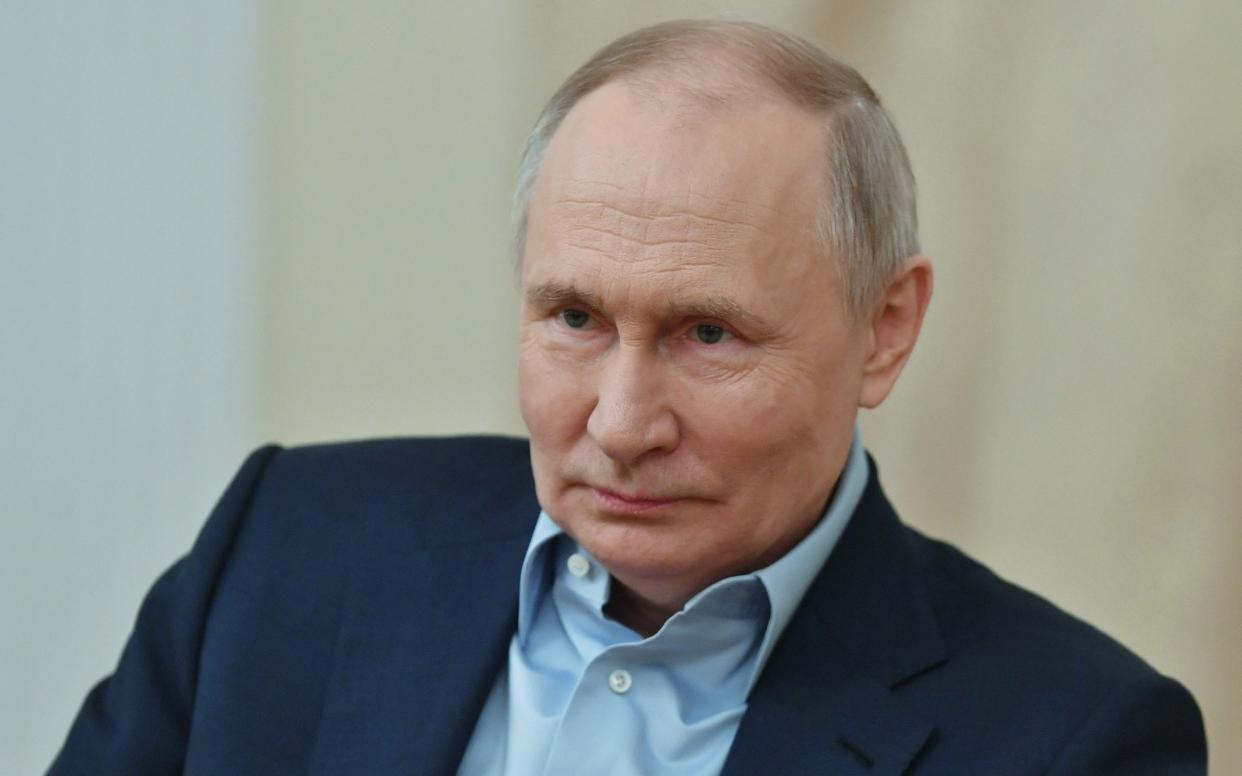The West could soon hand Putin the keys to Europe

There’s a palpable difference along the Ukrainian front this January, compared with this time last year. Then, the mood and optimism was buoyant, with western aid pouring in to Kyiv after successful offensives. The West presented a unified front, determined to ensure Putin’s barbarous war on Ukraine would not be successful.
That may all be dashed now, however. The collective western unity appears to be under heavy strain as the war staggers into its third year. By December 2023, Ukraine had received over US$230 billion in combined military, financial, and humanitarian aid, since Russia’s 2022 invasion. The largest donors have been the US, Germany, the UK, and various institutions of the European Union.
Up until very recently, this funding was reached through largely unanimous domestic and internal consensus, above party politics or the domestic affairs of the state or institution in question, with a few isolated examples.
All of that changed by the end of last year, as the US Congress became locked in a financial and political struggle. The majority Republicans wanted to see the US’s latest spending in Ukraine, worth US$110.5 billion, tied to a domestic security agenda. Only days later in Brussels, Europe’s Putin-apologist and Hungarian Prime Minister Viktor Orbán blocked the EU’s planned €50billion (£42bn) aid package reaching Ukraine.
The timing for this collective disunity could not be worse for Ukraine. Just as the international lifeline threatens to run dry, Russia is at a point where it is overhauling its still vast, if not largely outdated, defence industrial base to industrialise its war effort, with up to one third of its domestic economic output geared towards defeating Ukraine.
This recent collective western disunity, in conjunction with Russia’s recent reindustrialisation, is having significant effects already on the frontlines across southern and eastern Ukraine. The ability for both sides to leverage artillery to support armoured assaults and defensive manoeuvres has been a feature of all industrialised land warfare campaigns. This war is no different, and it is highly telling of the troubling situation facing Ukraine today that its forces are firing as few as half the number of artillery shells as its enemy.
We can look to the European Union for signs of how this western disunity can permeate and impact the battlefield. Having contributed almost US$6 billion in military aid, behind only the US, Germany, and the UK, Brussels voted to send increasingly offensive weapons to Kyiv, for the first time in its history. A not-so unremarkable turn of events for a trading bloc designed originally to prevent conflict in Europe returning.
In March last year, Brussels agreed to send Ukraine one million artillery shells by March this year (in particular, the much-needed 155mm shells required for US and European donated Howitzers). However, almost one year on, and the number donated is around 300,000, less than one third promised. A significant obstacle was the various EU member states’ existing export commitments, in addition to most European states still trading on the peace dividend from the 1990s, maintaining an un-modernised defence industrial base geared for peacetime, not war – despite Putin’s invasion of Ukraine and annexation of Crimea in 2014.
This situation simply is not good enough, for Ukraine’s short to medium-term security and especially not for Europe’s long-term. As the US election begins to pick up this month with the Republican primary in Iowa, a confident Donald Trump is set for a close rematch with incumbent Joe Biden.
The prospect of a return for a Trump administration has already left many in Europe and Ukraine wondering who will pick up the pieces for Europe’s security. The answer has to be from Europe itself, yet the example of such a shortfall in promised artillery shells for Ukraine should be a wake-up to the continent’s unified defence industrial base, that now is the time to get serious, and it can no longer able to freeload from Washington to guarantee peace and security. Our politicians and diplomats must use this now to plan for this eventuality by the end of this year.
Despite Hungary’s appalling stance on Ukraine, the EU remain confident that they can get the financial and military aid packages voted in. Things look a little more shaky in Washington, with no apparent sign of compromise from either side of the House and no vote announced yet for this year.
Given the war in the Middle East and escalating tensions across the South China Sea and Taiwan Strait, the West can ill afford to continually take its long-term eye off Ukraine, for the disastrous ramifications for all of Europe should the West fail to act in collective unity in supporting Ukraine, as a despotic Putin will surely eye his next territorial prize in neighbouring Moldova, or even the Baltics.
The West, and in particular European Nato, must urgently begin to rearm, reindustrialise, and relearn the arts of deterrence and alliance building. Failure to do so will be to hand Putin the keys to Europe for his burgeoning dreams of Empire, and the end of the western alliance as we know it.
Robert Clark previously served in the British Army

 Yahoo News
Yahoo News 
